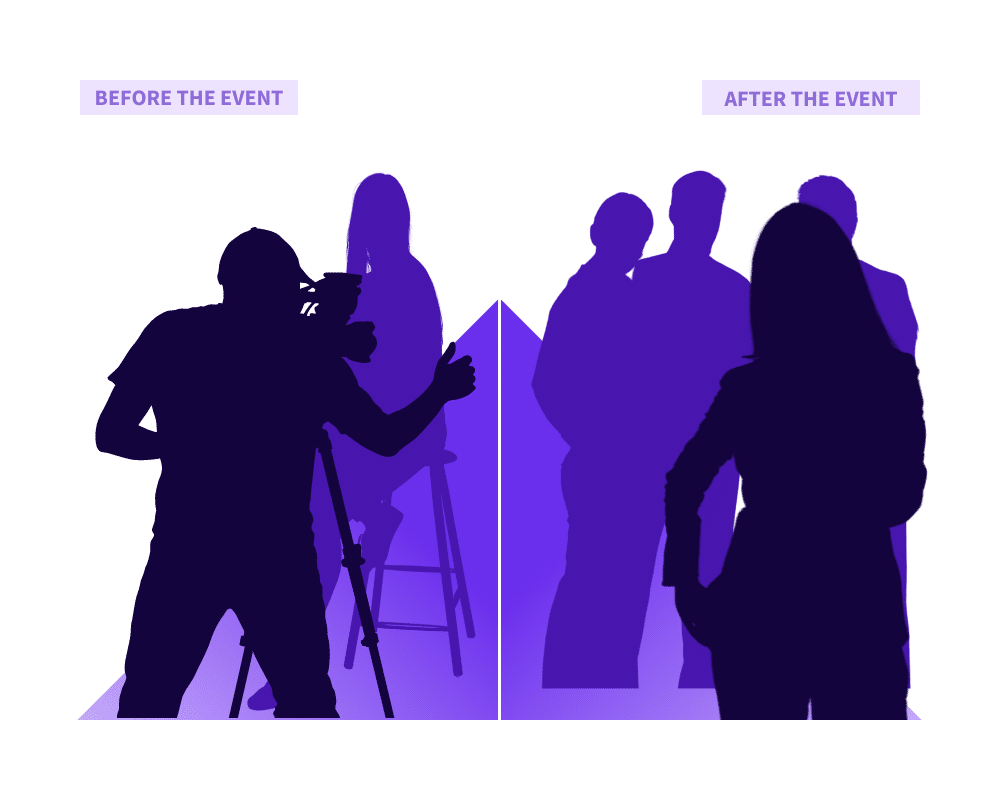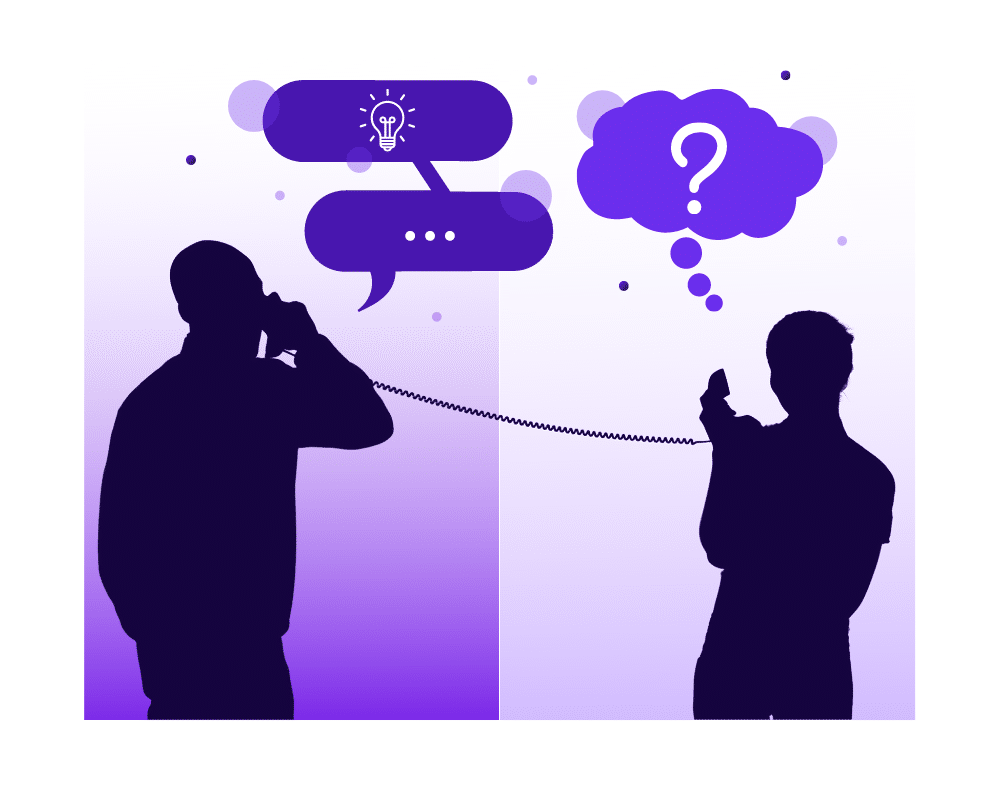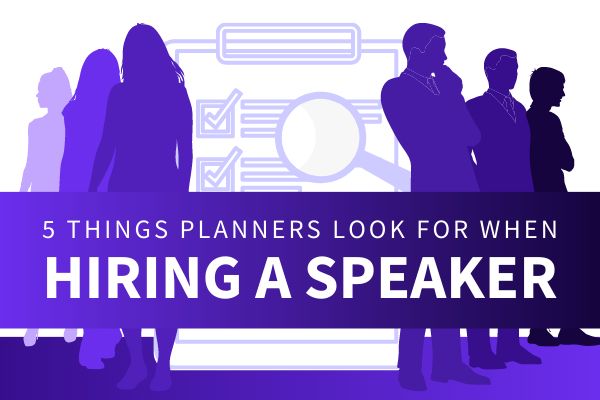As anyone with sales experience will tell you, one of the truest sales mantras out there – and one of the toughest to accept – is that sales is a “numbers game”. Even if you offer the most amazing service or ground-breaking product, some people just won’t be interested. And the more conversations you have, the more likely you are to connect and convert leads into customers. Plus, because you’ll be gaining sales practice in the process, you’ll also increase the percentage of conversations that end with a purchase or, in the case of professional speakers, a “yes” from the planner hiring a speaker.
Knowing this, this short-and-sweet guide is intended to give you a headstart as you enter conversations with event organizers. Even with sales experience, the speaking industry is an entirely unique ballgame, and knowing the rules ahead of time can mean the difference between months of building your sales skills and years.
Here, we’ll cover five of the most important details to keep in mind when honing those skills. These include the key things planners look for when comparing speakers, from professional credentials to personality traits. We’ll also touch on a few tried-and-true sales techniques to help you appear self-assured and experienced. That way, even if you’re at the beginning of your speaker sales journey, you can confidently book events.
Focus On Attendees (Not Themselves)
First and foremost, if you want to win over event organizers, be selfless. When hiring a speaker, planners aren’t “shopping” for themselves. Instead, they’re thinking about their future audience. How many people will be attending their event, for instance? What will the average attendee’s background be like? What problems or challenges are they facing, and what topics are they most interested in learning at the event?

These are just a handful of questions planners are balancing as they meet with you and your competitors. Consequently, if it’s apparent that you’re focused on the audience, too, they’re more likely to consider you a good fit for their event. To make this impression, first, start with some easy conversation. Unless they’re in a rush and only have a few minutes to talk, being personable and asking some “How’s your week going?” questions is an easy way to connect with them on a purely human level and start earning their trust and attention.
Once you’ve wrapped up your small talk, dive into their goals and concerns for their event. Are they looking for greater employee engagement or retention? Increased revenue or profits in the following year? Whatever they want to accomplish by hosting an event, asking the planner about it also tells you what they’re hoping a speaker can accomplish. This will come in handy during the “pitch” phase of your conversation, when you explain how your skills and approach will help them meet their event goals.
Long story short, focusing on attendees means structuring your conversations with planners around their needs rather than immediately jumping into all of the things that make you amazing. It can be tough to do, especially if you’re excited to share your ideas, but it always pays off.
Willingness To Help Outside Of The Event
Speaking of selflessness, another way to impress event planners is to offer assistance before and after the event. In many cases, a single planner isn’t simply interviewing potential speakers. They’re also coordinating with vendors and the AV team, planning activities for attendees, and communicating with decision-makers and executives to ensure the event meets their expectations. Combined, these responsibilities make for a stressful experience. So, the less you contribute to that stress, the more likely they are to notice you’re the perfect fit.

Depending on the event in question, there are many ways to provide this additional support. Below are a few of the most common ones we’ve seen within the speaking industry.
- Custom promotional videos for them to share on their social media channels pre-event.
- Contribution to their blog or podcast in order to promote the event.
- Post-event executive coaching or workshops with their team.
- Educational materials or access to your online coursework in order to help attendees implement your message from the event.
- Custom branded copies of your book for event attendees, complete with a custom forward specific to their event. Speaker Phil Jones is a great example of this.
- Pre- or post-event dinners or activities with members of the executive team.
Pro Tip: Providing services or products on top of a standard presentation also allows you to increase your speaker fees. When meeting an event planner, mention this as an option, saying something like, “Here’s what I normally charge for a keynote. However, for an additional $X,XXX, I also provide these pre- and post-event services”. That way, you can provide support and flexibility without seeming overly self-promotional.
References From Similar Clients
Third, like any sales conversation, a solid meeting with an event planner should include references. In recent years, more and more customers have come to depend on online reviews when making purchase decisions. In fact, according to BrightLocal’s annual consumer review survey, 91% of people regularly read online reviews, and 84% trust them as much as personal recommendations. That includes event planners hiring a speaker!

With this in mind, when choosing references for a planner proposal, a good rule of thumb is to follow the “Three Rs,” the first of which is relevance. Choose testimonials that are relevant to this planner’s situation. If you can prove that you provided exceptional service to someone hosting a similar event, you’ll also be able to position yourself as a seasoned expert for theirs, which then makes you more qualified.
Likewise, the second “R,” remarkability, builds that credibility further. A lot of reviews are great – don’t get me wrong – and relevant ones are even better. But sharing testimonials from noteworthy clients within your industry is a powerful way to make an impression.
Lastly, the third and final “R” stands for “recent.” In addition to seeing evidence of your previous work, event organizers love to see that you’ve continued to nurture those skills over time. If you’re an aspiring speaker, stress the number of events you’ve booked over the last year and how quickly that number is growing. If you’re an experienced speaker, showcase your recent clients, showing your continued dedication to honing your craft.
From that point onward – once you’ve narrowed down relevant, remarkable, recent reviews – include them in everything. From your speaking materials to your final proposal, the more you can show you already know their industry and its respective challenges, the better.
Efficiency & Clear Communication
Next, although it may seem like a no-brainer, another way to win over planners when they’re hiring a speaker is to be easy to work with. As mentioned before, event organizers typically have a lot on their plate at any given time. So, when they’re considering you for their event, they’re weighing your credentials, fair enough. But, they’re also looking for someone on whom they can depend during the stress of the event, someone they trust to help them meet their goals, and someone they genuinely enjoy collaborating with (and would consider working with more than once).

To present yourself as the ideal candidate in this requirements trifecta, clear communication is key. This includes:
- Efficient email replies. A general rule is answering within 24 hours, although faster is always better. Surprising, I know.
- Prompt phone calls. Planners’ time is just as valuable as yours so, while starting with small talk is fine, keeping your calls concise is a simple way to respect their busy schedule.
- Service–oriented conversations. You’re there to earn a living but also to serve the planner’s needs. Knowing this, make sure every conversation – via phone or email – is built around the question, “What can I do to be the easiest, most effective, most efficient speaker you’ve ever hired?”
Summarily, although your main goal is booking the event at a worthwhile price, you should also aim to make planners your fans, both as a speaker and an expert in their industry. After all, if they’re thrilled with your work, not only will they hire you for this single event. They’ll also have you top-of-mind when they plan future events, and they’ll be more likely to recommend you to other planners in their network. Win, win!
The Most Value For Their Speaker Fee
Finally, the fifth thing to remember when speaking with event planners is value. In the long run, every event planner is looking for the most “bang for their buck” when it comes to their event. In other words, they want to know which speaker – within their budget – can provide the most value before, during, and after their event.

Ultimately, the ways in which you add value depend on your audience and the specific event in question. However, if you truly want to know how you can provide the most value, your best bet is simple: ask!
For instance, when meeting a planner for the first time, keep the conversation open, and let them know that you’re there to share your expertise in a way that works for them. Ask, “What problems have you encountered in the past when hiring speakers?” and “What challenges do you typically face when planning an event and during the event itself?” Both of these questions are simple. But they give you a chance to see what common mistakes speakers make (so you can avoid them right out of the gate).
In the same way, in subsequent meetings, stay focused on providing value. In addition to the pre- and post-event offerings we covered back in Step #2, ask yourself, “What can I do to go above and beyond for this potential client?” Trust me – If you bust your butt for them before you’re hired, every other speaker will suffer by comparison.
With that said, hopefully, this guide gives you a headstart in your next conversation with a new potential client. For more information about booking speaking gigs, check out our ultimate guide to finding them, or shoot us an email at [email protected].





